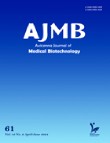Cardiovascular Considerations in Antidepressant Use
Depressive disorders are among the most prevalent disorders worldwide. About 1 in every 5 people experience an episode of depression in their lifetime (1,2). Therefore, antidepressants are among the most frequently prescribed medications worldwide. An analysis of a primary care database in the United Kingdom revealed that 23% of patients were ordered to take antidepressants at least once over the course of 17 years (1995-2011) (3). Antidepressants are categorized into some major groups: 1. Selective Serotonin Reuptake Inhibitors (SSRIs) such as sertraline, fluoxetine, citalopram and escitalopram, 2. Serotonin and Norepinephrine Reuptake Inhibitors (SNRIs) such as duloxetine and venlafaxine, 3. Tricyclic Antidepressants (TCAs) such as amitriptyline and nortriptyline, 4. Monoamine oxidase inhibitors (MAOIs) such as selegiline and 5. Atypical antidepressants such as bupropion and mirtazapine. Despite the production of newer antidepressants, patients taking these medications still experience some cardiovascular adverse effects.</div> One of the most well-known cardiovascular adverse effects of antidepressants is QT-prolonging. QT-prolonging can lead to fatal ventricular arrhythmias like Torsades de pointes (TdP) and precipitate sudden death. In 2011, the US Food and Drug Administration (FDA) cautioned healthcare professionals about QT-prolongation associated with high doses of citalopram (4). This encouraged various research groups to examine the safety of other antidepressants with respect to QT interval. Studies manifest that while TCAs are not associated with sudden death unless at higher doses; SSRIs are associated with a higher risk of sudden death specifically in adults with cardiovascular comorbidities (5). A meta-analysis revealed that among SSRIs, significant QT prolongations have been demonstrated in using citalopram and escitalopram; whereas fluoxetine, fluvoxamine, and sertraline did not show a clinically significant increase in QT interval at conventional doses in the majority of the studies (6). On the other hand, paroxetine monotherapy showed no QT prolongation in any of the studies (6-8). While SSRIs are mostly accused of causing QT prolongation; the most common cardiovascular complications caused by high doses of TCA are sinus tachycardia and hypotension (9,10). Sinus tachycardia, seen in 52% of cases with TCA overdose (11), is a result of anticholinergic activity and norepinephrine uptake inhibition by TCAs. Hypotension, on the other hand, happens due to a combination of depressed myocardial contractility and decreased resistance of blood vessels caused by a-adrenergic blockage (10). In contrast to TCAs, SNRIs like venlafaxine can cause hypertension. A pooled analysis of controlled studies showed that while venlafaxine has a low risk of causing clinically significant hypertension at doses <200 mg</em>/day; 5.5% of patients using doses >200 mg</em>/day show significant increases in blood pressure (12). Another issue to be considered is the possibility of cardiovascular birth defects caused by maternal exposure to antidepressants during pregnancy. Maternal exposure to antidepressants 3 months prior to pregnancy or during early pregnancy increases the risk of congenital heart diseases in the newborn (13). A study by Gao et al</em> indicated that newborns with intrauterine exposure to fluoxetine are at a greater risk for cardiovascular defects, especially septal defects(14). Persistent Pulmonary Hypertension of the Newborn (PPHN) is another complication caused by maternal SSRI exposure. research has shown higher rates of PPHN among infants who had intrauterine exposure to SSRIs (15); however, sertraline was proven to be the safest SSRI in this regard (16). Despite the facts regarding mentioned side effects, there are some evidence showing that antidepressants can be beneficial for the cardiovascular system in some manners. SSRIs are manifested to improve endothelial function, vascular inflammation, arterial stiffening and perhaps delaying atherosclerotic events (17,18). Moreover, antidepressant therapy was associated with lower odds of recurrent Myocardial Infarction (MI) in patients with acute coronary syndrome and concomitant depression (19). With those being said, it is crucial not to deprive depressed patients of their adequate drug therapy and to modify their medications based on cardiovascular safety along with the optimal efficacy of the drug.
- حق عضویت دریافتی صرف حمایت از نشریات عضو و نگهداری، تکمیل و توسعه مگیران میشود.
- پرداخت حق اشتراک و دانلود مقالات اجازه بازنشر آن در سایر رسانههای چاپی و دیجیتال را به کاربر نمیدهد.


